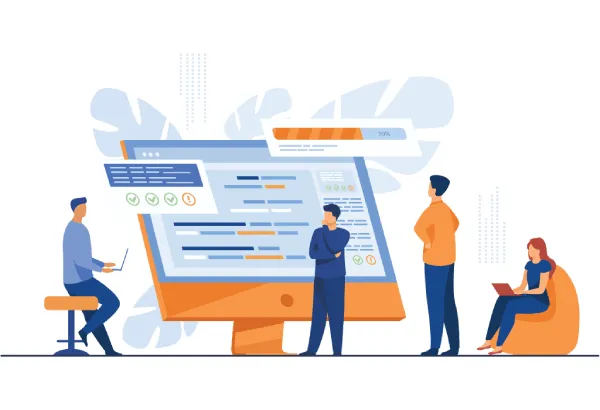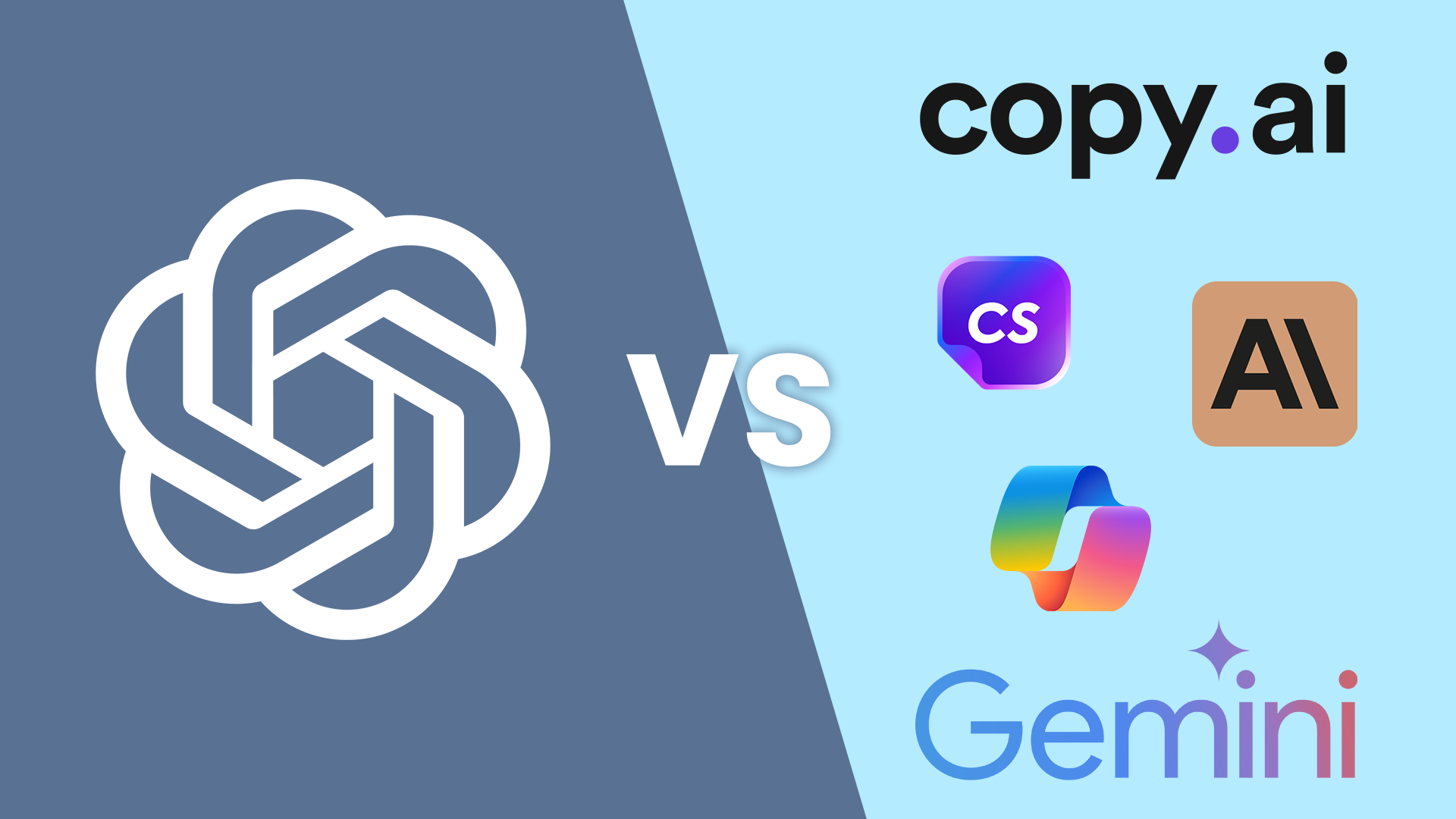ERP development is a critical process for businesses of all sizes. ERP systems provide a comprehensive view of an organization’s operations and are essential for making informed strategic decisions.
This ERP development tutorial will outline the steps involved in developing an ERP system. We’ll also provide tips for ensuring a successful implementation.
Whether you’re embarking on your first ERP development project or are looking to improve your existing process, this tutorial is for you!
A custom ERP software development can help you to do that. ERP (enterprise resource planning) software is designed to manage and streamline all aspects of a business, from inventory and sales to accounting and human resources.
By working with a skilled software development company, you can create a customized ERP system that meets the specific needs of your business.
This will boost efficiency and productivity and aid you in reducing costs and improving profits.
If you want to take your business to the next level, consider investing in custom ERP development services.
Also, learn about ERP VS. CRM technology. Are you getting the most out of your technology?
Table of Contents
What is ERP?
ERP (enterprise resource planning) is a software system that helps businesses manage their resources effectively.
It integrates all the company’s essential functions into one cohesive system, from accounting and finance to human resources and warehousing.
ERP systems can be extremely beneficial for businesses of all sizes, but choosing the right system for your specific needs is important.
There are a variety of ERP systems on the market, so researching your options is critical before making a purchase.
ERP can include accounting, HR, inventory management, and more. ERP systems can be customized to meet specific needs, and they often play a critical role in helping companies grow and scale.
Benefits of ERP software services
As a business owner, you know that having the right tools is essential to success. That’s why it’s important to invest in ERP software – a tool that can help your business run more efficiently and smoothly.
1) Increased efficiency – With ERP software, your employees can access the information they need quickly and easily. This means they can complete tasks faster and more efficiently.
2) Improved accuracy – With accurate data at their fingertips, employees are less likely to make mistakes.
3) Reduced costs – By automating tasks and streamlining processes, you can reduce the cost of doing business.
4) Improved customer service – Better access to customer information, quicker response times, enhanced on-time delivery, improved order precision.
5) Reinforced data security – As businesses grow, so does the amount of data they need to protect.
ERP systems provide a variety of benefits, including reinforced data security. In addition, ERP systems offer other features that help keep your data secure, such as role-based security and audit trails.
What is custom ERP software?
In today’s business world, custom software development is becoming more and more popular.
If you’re a business owner considering hiring a developer to create custom software for your company, here are a few things you need to know.
First of all, it’s important to understand that not all developers are created equal. There are good and bad developers, just like good and bad lawyers.
You should do your research before hiring someone to make sure you’re getting someone who is experienced and qualified.
What if your business needs specific functionality that isn’t included in off-the-shelf ERP software?
That’s where custom ERP software comes in. Custom ERP development tools are designed specifically for your business and can include features and functionality tailored to your specific needs.
Compared to off-the-shelf ERP software, custom ERP Software can be more expensive, but it can also be more flexible and better suited to your unique needs.
So, if you’re looking for a powerful and customizable solution, custom ERP software may be the right option for you.
Who needs a custom ERP software development?
If you’re a business professional, you know that having an effective ERP system is key to your success. But what happens when your company outgrows its current ERP system?
Rather than invest in a custom ERP development, consider these three options: upgrading your current system, purchasing an off-the-shelf ERP, or partnering with a managed services provider.
Whichever option you choose, ensure you partner with an experienced and qualified ERP developer to ensure a smooth implementation.
How much does a custom ERP system cost?
A custom ERP system is an integral part of any company’s business. If you’re not sure what that means, it’s the software that manages all your company data.
It organizes everything from inventory to customer orders and payroll information – essentially anything related to running a business!
The price differs depending on how much customization you need but averages around $50-$100 per hour for developing time plus $25-30 per hour for hosting/maintenance costs (on average).
So if you want something simple like an order tracking system, you can get started with less than $1000 for development time and hosting fees.
Custom ERP systems are customized to meet the specific needs of your company.
A software development company will optimize features and functionality to resolve any issues you face daily while also considering budget constraints when it comes time for implementation costs – which can vary between $45K-$250k.
Benefits of customizing ERP software
While ERP software is a powerful tool, it’s not always customizable to meet the specific needs of your business.
Fortunately, some companies specialize in customizing ERP software to fit the unique needs of their clients.
Many businesses choose to purchase and use off-the-shelf ERP software. While this can be a good solution in some cases, there are several benefits of customizing ERP software to meet the specific needs of your business.
1. You only pay for what you need
Different businesses have different needs and require different features from their ERP system.
That’s why it’s important to find a customizable ERP option that allows you to pay for only the features you actually need.
This way, you’re not wasting money on software that you don’t need, and you can get up and running quickly with a system that meets your specific requirements.
2. Test, add features, and track your budget
With a customized ERP, you can test new features, add functions as needed, and keep tight control of your budget. So don’t settle for a one-size-fits-all ERP system.
At MYNPEC, we can provide you with the perfect ERP system for your business. We have years of experience in the field, and our team of experts can help you find the perfect system for your needs.
Plus, our systems are always up-to-date with the latest technology trends, so you can be sure that your system will stay ahead of the curve.
3. Scale your ERP, scale your business
Custom ERP software development can create a tailored system that is perfect for your business’s specific needs.
This makes the final product more flexible and easy to scale as your company grows. Additionally, custom ERP systems often have lower total ownership costs than off-the-shelf solutions.
If you’re looking for a truly custom solution, then custom ERP software development is the way to go!
What does an ERP developer do?
An ERP developer is responsible for developing, configuring, and supporting enterprise resource planning software.
This software manages a business’s finances, manufacturing, human resources, and sales.
An ERP developer must have a strong understanding of business processes and translate them into functional software.
They also need to work with a variety of programming languages and databases. If you’re looking for someone who can help you streamline your business processes, then an ERP developer may be the perfect fit.
ERP developers work with computer programming and business management to develop an efficient system for their company’s needs.
ERP development teams often have diverse backgrounds, including computer science, information technology, marketing, or finance.
ERP Development Teams mainly focus on three areas: Business Process Re-engineering, Data Conversion/Transformation & Testing/Deployment of Solution.
The most important thing about an ERP developer is understanding the business process to develop effective software systems used by all departments in an organization.
It’s not just enough to have good technical skills – you need excellent soft skills too!
What are the advantages and disadvantages of developing a custom ERP?
Developing a custom ERP can be advantageous for businesses to meet their specific needs and requirements.
However, there are also disadvantages to developing a custom ERP, which should be considered before making this decision.
Some of the advantages of developing a custom ERP include being tailored to meet the business’s specific needs, providing an efficient and effective solution, and improving communication within the company.
However, some disadvantages include that it can be expensive to develop and maintain, it can be time-consuming to implement and configure, and there is a higher risk of software failure.
It is important to weigh up the pros and cons of developing a custom ERP before deciding so that you make the right choice!
Reasons to develop a custom ERP system
Every business is different, and no two businesses will need the same ERP software.
Developing a custom system that fits your specific needs is important to get the most out of an ERP system.
Source : webitfactory.io
Here are some reasons why you might want to consider a custom ERP system for your business:
1. Cost-effective
Did you know that a custom ERP system can be cost-effective for your business? Many businesses make the mistake of thinking that they need to purchase an off-the-shelf system, but this isn’t always the case.
A custom ERP system can be tailored to meet the specific needs of your business, and it can often be more affordable than an off-the-shelf option.
Contact a software development company today to learn how custom ERP software services can benefit your business.
2. Steady workflow
To keep a business running smoothly, an efficient workflow is key. Custom ERP systems can help achieve this by streamlining processes and automating tasks.
By eliminating the need for manual input and providing real-time information, companies can enjoy a more streamlined operation that leads to better productivity and profitability.
3. A higher level of control
ERP systems offer a high level of control for businesses. Having an ERP system in place lets you easily manage your resources, processes, and data.
This gives you a clear view of how your company performs and allows you to make changes as needed.
4. Scalability
As your business grows, you may find that your current software solution can no longer handle the additional load.
This is where an ERP system can come in handy. An ERP system is scalable, meaning it can grow with your company.
Unlike a stand-alone application, an ERP system is designed to be modular, so you can add or subtract features as needed.
This makes it a great option for businesses of all sizes. Plus, an ERP system can help you to streamline operations, improving efficiency and productivity.
If your business is ready to make the switch to an ERP system, be sure to consider scalability as one of your top priorities.
How to develop a custom ERP: Step by Step
ERP software is used by businesses to manage their operations. The ERP development process can be complex, involving multiple teams and stakeholders, but it’s worth the investment because of how well-compatible your business’s processes will be.

Step 1: Understanding business processes and defining goals
The software development process begins not with coding but with understanding the client’s business processes.
It is important to have meetings and negotiations with clients to achieve company visibility.
Clients should explain their requirements, wishes, or expectations regarding functionality they want in a product that you create for them so there can be no surprises later on down the line when bringing this idea into reality!
Step 2: Blueprint and prototype design
Creating a blueprint and prototype for ERP development can be difficult, especially when deciding on the modules that will make up your system.
The most popular choices include manufacturing, human resource management, procurement & sales management, financials like banking or accounting.
Other services might also need integration depending on what you want from them – some businesses integrate marketing into their business model to offer more customer-facing features than just those related strictly to eCommerce platforms.
Step 3: Development
For this step, technical decisions should be made regarding:
-Hosting (on-premises or cloud),
-Backend (databases, architecture, security systems, content management, and other components that make the software work, update, and change),
-Frontend (UI and UX),
-Integration (critical data is not to be lost but should be reconfigured to be available for further usage in a new software design).
Step 4: Testing
After the team has developed and debugged their custom software, they will do final testing to meet all requirements.
After this is done, engineers can go ahead with implementation, which may take some time until client acceptance becomes finalized.
Custom vs. off-the-shelf ERP software
There are two main options for enterprise resource planning (ERP) software: custom and off-the-shelf.
Custom ERP software is designed specifically for your company, while off-the-shelf ERP software is pre-made and available to anyone.
Off-the-shelf ERP software is a comprehensive, ready-made business solution that can be adapted to your company’s specific needs. It is designed for large and mid-sized businesses and can be implemented quickly and affordably.
Unlike custom ERP software development, which is tailored specifically to the needs of a single organization, off-the-shelf ERP is based on well-tested and proven components that many other companies have used.
This means that it can be configured to meet the specific requirements of your business with relative ease.
So which one is right for you?
If you’re a small business, an off-the-shelf ERP system might be the best option for you. Customized ERP systems are expensive and time-consuming to build, and they’re not always necessary.
Off-the-shelf ERP systems often have all of the features you need, and they’re easy to use. Plus, they’re usually more affordable than customized systems.
So if you’re looking for a fast, affordable way to improve your business’s efficiency, an off-the-shelf ERP system is a good option.
Small businesses often have difficulty deciding whether to develop their custom ERP system or purchase an off-the-shelf system.
The decision is complicated by the many factors in choosing an ERP system, including company size, business needs, and budget. In most cases, off-the-shelf ERP systems are a better option for small companies.
While custom ERP systems offer more flexibility and can be tailored to meet the exact needs of a particular business, they can also be quite expensive and require significant IT resources to implement and maintain.
Off-the-shelf ERP software might be a convenient option for some businesses, but it may not be the best choice for others.
Customized ERP software can offer many benefits that off-the-shelf software cannot.
- Choose the right ERP vendor to get tailor-made features catering to your specific needs and save on customizations cost;
- Increase efficiency across all departments & get rid of redundant processes arising due to poor interface design or inflexible standard software;
- Saving time will increase overall productivity;
- Make better use of big data with predictive analytics.
Things to keep in mind when implementing an ERP software
When it comes to implementing ERP software, there are a few things you need to keep in mind.
Making sure the software is a good fit for your business and having the resources to implement and support it are two of the most important factors.
Here are three more tips to help make your ERP implementation go as smoothly as possible:
1. Users
Before you complete or even begin the process ensure that your employees are educated about ERP software.
Proper training is crucial for them to maximize software usage and get the required results!
2. Business intelligence
Imagine the possibilities when you connect your ERP software with every data source available.
You can be confident that no matter what, there will always be an accurate report for how things are going in terms of operations and business status because integrating provides complete visibility across all channels while also syncing up seamlessly.
3. Data quality control
This is an important stage in the implementation process because it’s necessary to have a clear idea about what data you need for your new system.
With this information, any other systems can be more easily compatible with yours and potentially reduce cost by not having separate solutions or consolidating them into one solution provider.
The first step should always involve deciding how much legacy content needs replacing- generated from old systems and inaccurate/duplicate sets found within previous ERP implementations.
The second involves clearing those same types of cleaned-up records so they will never again appear twice when trying to track changes made throughout different periods.
Which framework is best for ERP development?
Since the creation of ERP systems, there has been a debate about which framework is best for app development.
ERP is an integrated system that helps managers oversee the flow of goods and services through their company.
These systems are often used in manufacturing, retail, or healthcare, where product lines are complex and customer demands fluctuate constantly.
The three main frameworks for ERP development are .NET MVC, Java Spring Boot, Ruby on Rails (ROR). There are other alternatives, but these 3 frameworks represent some of today’s more popular choices.
1) .NET MVC
The best framework to build your next Enterprise Resource Planning (ERP) software is .NET MVC.
It’s the most popular open-source web application framework for building applications that can be used on any device and browser.
The .NET MVC framework is an open-source web application framework that provides a lightweight, highly testable, and maintainable architecture. It has built-in support for AJAX calls with jQuery on the client-side.
Additionally, it offers multiple ways to render output (HTML, JSON, XML), making building dynamic applications easier than ever before.
2. Java Spring Boot
The Java spring boot framework simplifies the development of enterprise applications by reducing the number of lines of code and time to market.
It reduces the complexity of developing an application, making it easy for developers to work on a project from start to finish. In addition, it provides a way for business owners to manage their resources more efficiently and effectively without having to worry about IT requirements.
Java Spring Boot framework is the fastest way to develop enterprise-grade applications and can be used for ERP development.
It provides a rich set of features that make it easy to build an application, including MVC web framework, dependency injection, inversion of control, and lightweight testing support.
With Java Spring Boot, developers can focus on business logic and forget about configuration details such as setting up databases or connecting to other systems.
The result is less time spent writing code and more time focused on developing value for your business.
3. Ruby on Rails (ROR)
Ruby on Rails (ROR) is a popular open-source web application development framework.
It enables developers to create elegant and efficient code while significantly reducing development time.
ROR is particularly well-suited for developing enterprise resource planning (ERP) applications.
Ruby on rails has been widely used for developing ERP systems, and it has a proven track record of success with over 200 companies using this framework for their applications.
Many people consider Ruby on Rails the best option for building enterprise-level software because of its efficiency and performance.
Which industries need ERP software?
ERP software is essential for businesses in a wide range of industries. Here we will look at some of the most important sectors that rely on ERP to keep operations running smoothly.
1. Healthcare industry
The healthcare industry is growing rapidly, and businesses need powerful ERP software to keep up. Thankfully, many top ERP providers have released versions of their software specifically tailored to the healthcare industry.
If your business is in the healthcare industry, you should consider upgrading to an ERP system designed for healthcare.
Not only will you be able to manage your operations more effectively, but you’ll also be able to comply with government regulations.
Healthcare providers need to keep track of an enormous amount of data, from patient records to inventory levels.
ERP software can help organizations track patients’ medical histories, manage appointments and prescriptions, and even monitor budgets.
In addition, ERP software can help healthcare providers comply with government regulations.
2. Manufacturing industry
ERP software is a critical tool for manufacturing companies. It enables them to manage their production processes and resources effectively and efficiently.
However, not all ERP software is created equal. Manufacturing companies must carefully select an ERP system that meets their specific needs and requirements.
Otherwise, they may experience difficulties managing their operations and meeting deadlines.
3. Education industry
ERP systems track and control everything from inventory to employee scheduling.
They can be used in any industry, but they are particularly useful in the education industry, where tight budgets and complex logistical challenges make efficient operation a top priority.
Because ERP systems are designed to streamline business processes, they can help school administrators save time and money while improving the quality of education they provide.
4. Retail
Small businesses can greatly benefit from using ERP software. The truth is, this type of software is not just for big enterprises; even small businesses can make use of it to improve their day-to-day operations.
There are several benefits that retailers can reap from using an ERP system.
There are many advantages that retailers can gain by implementing an ERP system into their organization, such as increased efficiency, better customer service, and improved organizational structure.
Small businesses these days have a wealth of options to choose from when it comes to enterprise resource planning (ERP) software.
But even with all of the choices on the market, not all small businesses can develop their own ERP software. That’s where ERP development services come in.
Conclusion
If you’re looking for custom ERP software development, NPEC is here to help. We offer a best-in-class custom ERP solution that will meet your requirements and exceed them in every way.
It doesn’t matter what industry you’re in or how large of a business you have – we can tailor an ERP system just for you.
Reach out and see how our development team of experts can get started with building the perfect custom solutions today!
Contact us now to learn more about why a custom ERP system might be right for your business, as well as the benefits it could bring!
FAQs
1. Can I develop my own ERP?
Not only will you have a custom-tailored solution that meets the specific needs of your business operations, but you’ll also be satisfied with the creation.
Small businesses have a lot of advantages over their larger counterparts. One of the most notable is that they can be more agile and responsive to change.
This agility often leads small businesses to develop their own custom-built ERP (Enterprise Resource Planning) software solutions rather than relying on off-the-shelf software.
2. How to make ERP software in Java?
It can help track inventory, monitor financials, and organize employee schedules. There are many different types of ERP software available, but all share the same basic features.
If you’re interested in making your own ERP software, Java is a good language to use.
If you are looking for a way to simplify your business, one of the best ways is by using ERP software in java. It has become popular with businesses over the last few years because it provides them with all sorts of benefits they wouldn’t have otherwise had.
3. How do you plan an ERP implementation?
Planning an ERP implementation can seem daunting, but it doesn’t have to be. By breaking the process down into smaller chunks, you can ensure that each step is taken care of properly and that your implementation goes as smoothly as possible.
One of the most important things is to create a clear roadmap and timeline. This will help keep everyone on track and ensure that no steps are missed along the way.






